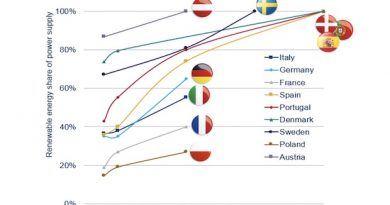UK makes SAF use in airlines mandatory from today
Starting January 1, all flights departing the UK must include at least 2% SAF, with this figure set to rise to 10% by 2030 and 22% by 2040, according to a government official statement.

In a landmark move to decarbonise the aviation sector in the United Kingdom, the national government has introduced a mandate under which airlines are required to adopt sustainable aviation fuel (SAF) in operations. Starting Wednesday, all flights departing the UK must include at least 2% SAF, with this figure set to rise to 10% by 2030 and 22% by 2040, according to a government official statement.
The industry is describing it as ‘one of the world’s first’ mandates of its kind, the initiative is expected to substantially cut carbon emissions across the aviation sector. SAF is produced from renewable sources like household waste and used cooking oil and generates approximately 70% less carbon than conventional jet fuel.
The UK mandate reinforces the nation’s leadership in sustainable aviation, compelling airlines to transition to cleaner fuel alternatives. By 2030, domestic SAF production is projected to reach 1.2 million tonnes annually – enough to power 3,000 global circumnavigations.
From 1 January 2025, airlines will be legally bound to ensure SAF constitutes at least 2% of their fuel supply, aligning with the broader goal of fostering sustainable energy solutions. This shift is poised to create thousands of skilled jobs and drive economic growth.
Aviation Minister Mike Kane hailed the mandate as a pivotal step for the industry, stating, “From this moment on, aviation will be a greener, more sustainable form of travel and today marks a significant milestone for the UK SAF industry. With thousands of jobs supporting the UK SAF industry and flying becoming popular than ever, the mandate will help deliver our Plan for Change helping to grow the economy and giving people the freedom to travel in a more sustainable way.”
Airlines UK CEO Tim Alderslade affirmed the industry’s support, describing the SAF mandate as both practical and essential in achieving net zero emissions. He underscored the importance of ensuring airlines have reliable access to SAF at competitive prices as global demand accelerates.



